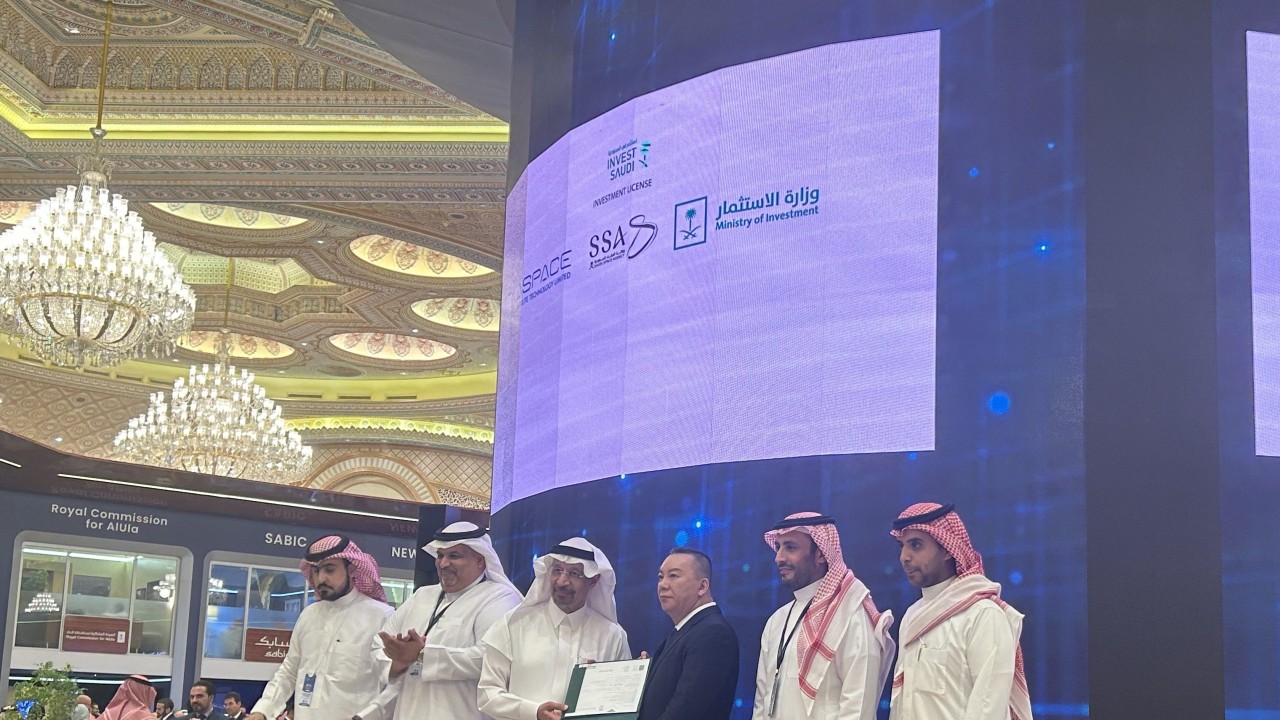
ASPACE Hong Kong Satellite Manufacturing Center, a subsidiary of Hong Kong Aerospace Technology Group (HKATG), has signed an agreement with Saudi Arabia’s ministry of investment to develop satellites and will invest an initial amount of US$200 million in the project.
The deal signed on Wednesday means the Hong Kong firm is the first company to operate in the aerospace sector in the Middle Eastern country, Sun Fengquan, ASPACE’s co-chairman and CEO, told the Post on the sidelines of the Future Investment Initiative (FII) summit in Riyadh on Thursday.
“We will explore the [possibility of] manufacturing satellites and related parts in Saudi Arabia,” Sun said. The firm will look into the “holistic development of making a satellite, including the launch of satellites, in Saudi Arabia”.
Saudi Arabia aims to build its own aerospace corporation with ASPACE playing a pioneering role, he added.
“We will have to jointly develop the company with the Saudi government for the next stage,” Sun said, adding that a number of Saudi officials have visited his company’s facilities in Tseung Kwan O in Hong Kong.
Granting ASPACE the first investment licence in the satellite field is a “cornerstone” for related investments in the country, Khalid Al-Falih, the Saudi minister of investment, was quoted as saying by Organization of Asia-Pacific News Agency.
Business leaders issue global economy warning in Saudi Arabia, praise AI
Business leaders issue global economy warning in Saudi Arabia, praise AI
“The satellite industry is going through remarkable advancements that will further enhance the kingdom’s attractiveness and global competitiveness,” Al-Falih said.
The deal is significant for HKATG, Hong Kong’s first commercial aerospace enterprise focusing on satellite network engineering and precision satellite manufacturing, as the city is keen on showcasing its potential to become an aerospace hub. It seeks to establish itself as a key player in the US$281 billion global commercial satellite industry.
Asia-Middle East corridor presents opportunities for growth, Aguzin says
Asia-Middle East corridor presents opportunities for growth, Aguzin says
Sun said ASPACE is a “purely private company” set up six years ago in Hong Kong, although it receives facilities, technology and talent support from China. He picked Hong Kong for his business because the cost of making satellites in the city is 25 per cent lower than that in China, due to its zero industrial tariffs.
Hong Kong is a separate customs territory of the World Trade Organization that has zero tariffs for imports and exports, Sun said, which is “an apparent benefit” for his firm.
Hong Kong’s Paul Chan to join Dimon, Dalio addressing world’s challenges in Riyadh
Hong Kong’s Paul Chan to join Dimon, Dalio addressing world’s challenges in Riyadh
Saudi Arabia’s 2030 vision targets the development of a big aerospace industry, and the country offered ASPACE a lot of incentives, such as zero land costs. “We [also] got a lot of support on the capital front,” Sun said.
“A few hundred investment banks have been in touch with us.”

